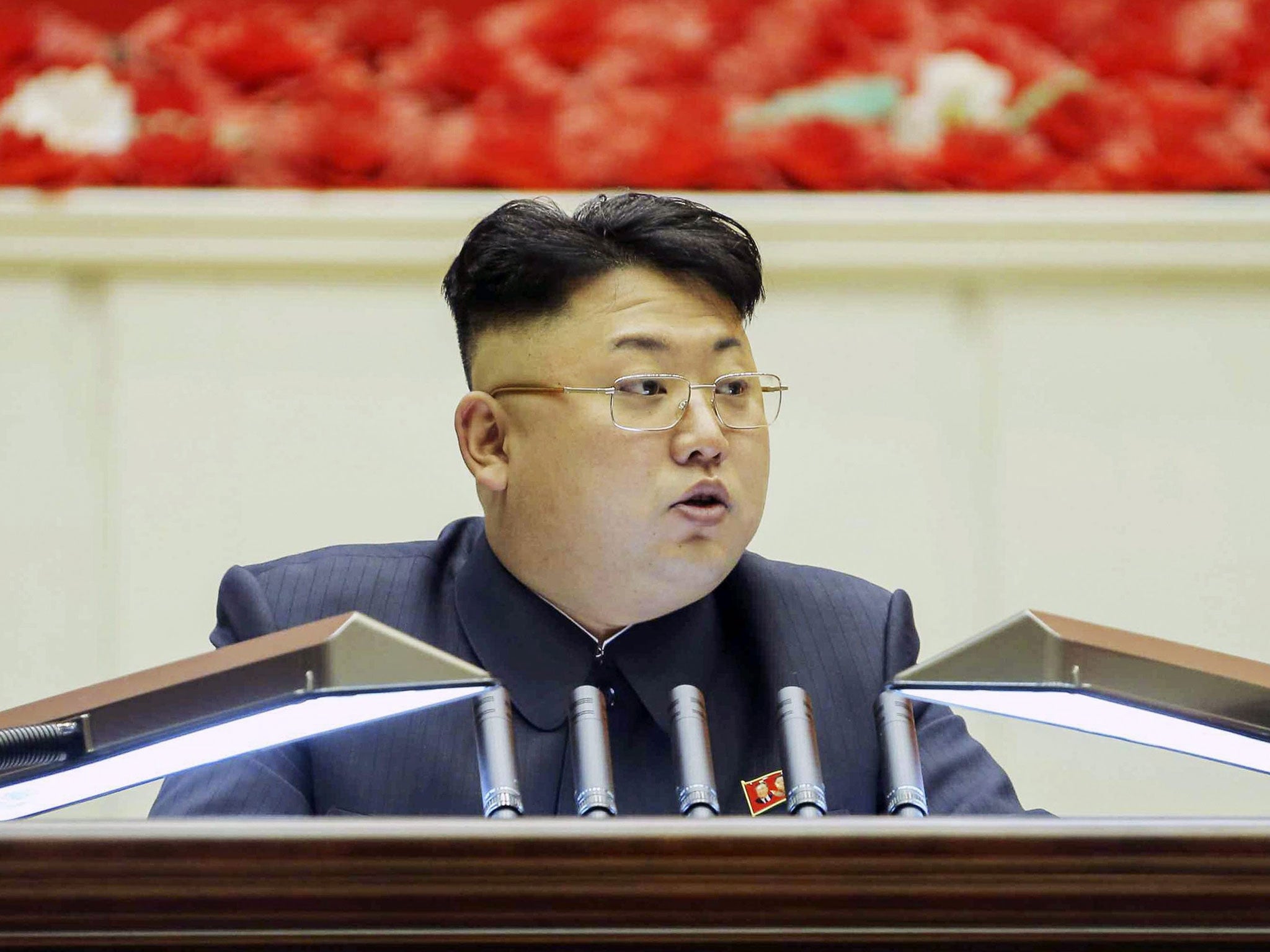World view: Kim Jong-un's purges betray the weakness that makes North Korea a growing danger
North Korean news has always had a credibility problem but since the accession of Kim Jong-un it has grown far, far worse


We are living in increasingly interesting times. In eastern Europe, Russia seems intent on re-running the early days of the Cold War. A whole new generation is discovering the tingling of hairs on the back of the neck that you get when nuclear-armed nations start playing bad-tempered hands of poker.
Meanwhile on the other side of the world, brace yourselves for a re-enactment of the event that set the Cold War in motion – war on the Korean peninsula, as the US and South Korea tomorrow [Friday] embark on their biggest ever aerial war games. The twice-yearly Max Thunder exercise, running to 25 April, coincides with two other ongoing exercises which have already provoked the North into a new bout of missile testing.
Two weeks ago, north and south traded fire across their maritime border, and there is a strong likelihood of further escalation before the fun and games are over. Remember, although the Korean War ended more than half a century ago, the two Koreas have never signed a peace treaty, and its tempestuous young leader has torn up what frail agreements did exist, declaring that the North is in a state of war with both the US and South Korea, and warning of his intention and ability to hit targets as far away as the continental US. It would be nice to treat Kim Jong-un, as a bizarre Korean joke; nice, but unwise.
The British response to this, if reports are to be believed, is to provide the regime with episodes of Teletubbies, Dr Who and Top Gear. Efforts to persuade the BBC to launch a dedicated Korean language World Service radio service to provide this actuality-starved population with real news have so far got nowhere.
Besides earning the corporation a few extra groats, it is hard to understand what sense there could be in bombarding the North Korean population with yet more incomprehensible fantasies, this time dreamed up in W1A. What passes for news in the Democratic Republic is bizarre enough already, without help from Dipsy, Laa-Laa, Po and Tinky Winky.
North Korean news has always had a credibility problem but since the accession of Kim Jong-un it has grown far, far worse, to the extent that people are looking back on the reign of his diminutive dad as a golden age of clarity and commonsense.
Of the recent alleged news stories supposedly coming out of Pyongyang, which have even a tangential connection with the truth? The report that Uncle Jang Song Thaek was torn to pieces by famished dogs turned out to be the Chinese idea of a joke. Jang’s crony O Sang-Hon has also been liquidated, but was he done in by a flamethrower, as reported by the reputable South Korean newspaper Chosun Ilbo? That too, was very likely no more than a gruesome rumour.
But the official news is equally weird. This week Pyongyang reported Kim Jong-Un re-election as First Chairman of the National Defence Commission. It is said that he obtained 100 per cent of the vote. Believe it if you will – the North Koreans certainly don’t. This week a defector told the Daily Telegraph, “Nowadays people believe less than 20 per cent of what is broadcast…They only use newspapers to roll their cigarettes.”
But through the fog of propaganda, rumour and baroque invention, certain facts about this rogue regime are discernible. The execution of Uncle Jang was clearly the young dictator’s bid to destroy his most serious rival for absolute power, and to prove, outside the country as well as in, that he and only he is the boss. But to the extent that this unprecedented purge exposed deep and dangerous rifts at the heart of the regime, it was evidence as much of his weakness as his ruthlessness. And that raises the most fundamental question about the North Korean regime: how will it end?
Kim Jong-un’s strategy for survival could not be clearer or cruder: terrorise and purge your enemies within, hurl threats and ill-aimed missiles at those abroad. It may appear extreme, but it is in line with the national psychology of the north, sedulously nurtured by all three Kims for 60 years: that of a plucky, uniquely virtuous country whose only hope, surrounded by vicious enemies, is to cultivate ‘juche’, self-reliance. And in the absence of reliable alternative sources of information such as the BBC World Service, the brainwashing inevitably works.
South Korea’s belligerent President Park Geun-hye, daughter of the military dictator Park Chung-hee, has decided to take Kim’s threats at face value, authorising pre-emptive military action if the army believes a missile attack from the north is imminent, authorising the military to respond without reference to political concerns.
But this approach, combined with ostentatious military exercises like the one that is about to start, play straight into Pyongyang’s hand. The underlying goal may be to weaken and even remove Kim, but the in the short run their likely effect will be to make him stronger. And if his army again responds with firepower, we will be in terrifying new territory, given President Park’s new guidelines. There is a grave danger that the result could be a full-blown military confrontation, with results that no-one could safely predict.
That seems a crazy risk to run. Kim Jong-un is the political equivalent of the late cult leader Jim Jones. Threatening him with annihilation is no way to talk him down. That’s like practically ordering him to start doling out the Cool-Aid.

Join our commenting forum
Join thought-provoking conversations, follow other Independent readers and see their replies